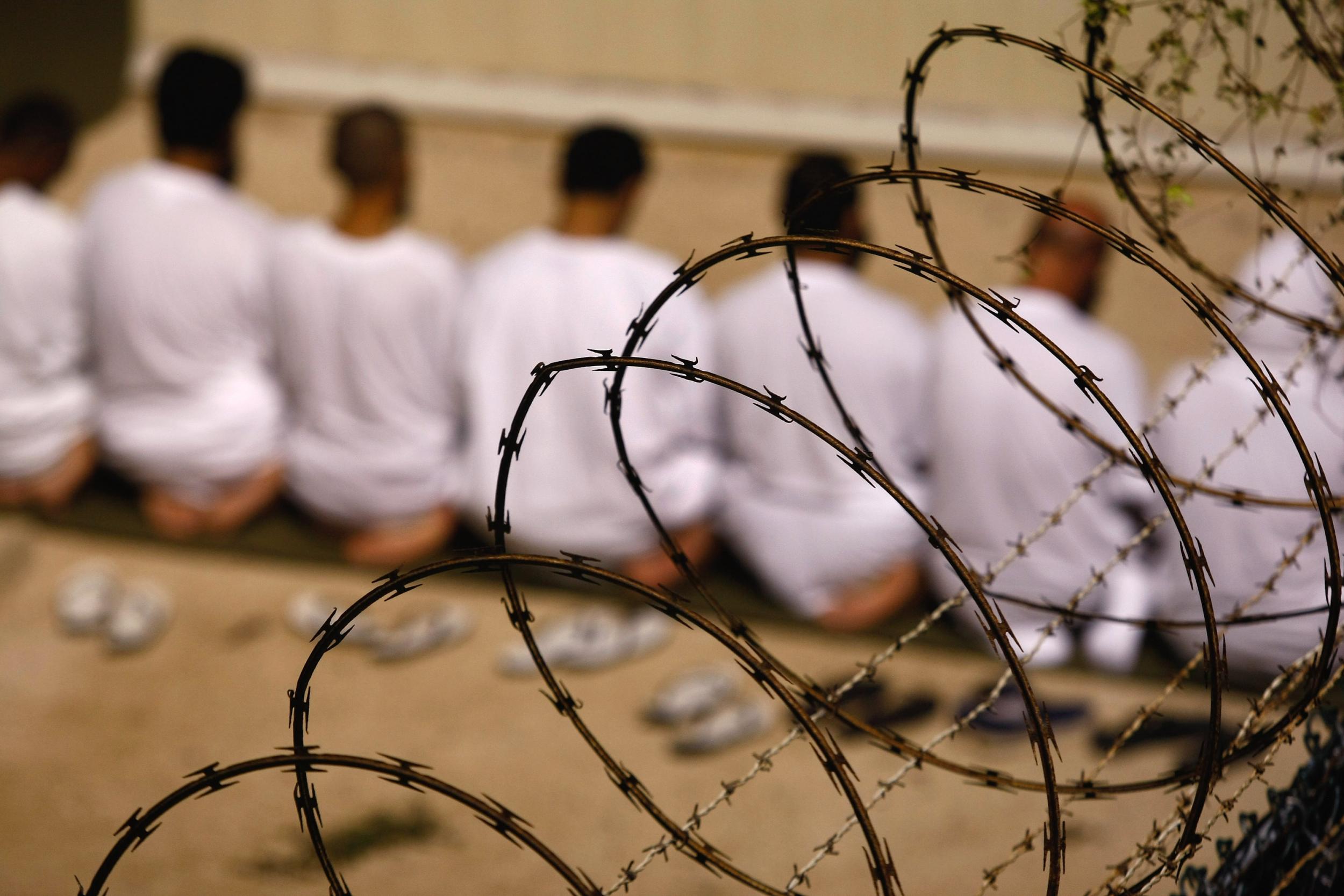Guantanamo Bay detainees held for up to 15 years to argue for release in US court
Lawyers claim inmate are in 'perpetual detention for detention’s sake'

Eleven inmates detained in the US military prison at Guantánamo Bay for up to 15 years will have the case for their release – the largest of its kind – heard in a US district court this week.
Attorneys for the Centre for Constitutional Rights (CCR) will argue a mass habeas corpus petition on behalf of the inmates in DC District court, demanding they either be tried or released. The inmates have been held without charge in the infamous American detention facility for years, in what their lawyers argue amounts to “perpetual detention for detention’s sake”.
Lawyers for the CCR and Reprieve, a human rights organisation that represents four of the detainees, filed the habeas corpus petition in January of this year, on the 16th anniversary of Guantánamo’s opening. The attorneys argued that the detention of the inmates without charge is unconstitutional, because any rationale for detaining them has long expired.
"Indefinite, potentially permanent detention without charge is not permitted under the US Constitution, and under international law," CCR attorney Pardiss Kebriaei told The Independent.
"Our point today is that – even assuming that there was a lawful basis for their initial detention for some period of time – is their indefinite detention today defensible?"
Arguments for eight of the petitioners will be heard on Wednesday by Thomas Hogan, a senior US district judge for the District of Columbia. Arguments for the three others will be heard in front of two more DC district court judges shortly.
Ms Kebriaei said her team requested that the eight detainees in Wednesday's hearing be allowed to listen to the arguments live from Guantánamo, but were denied. The government said they did not have enough rooms or phones for the inmates to listen in separately, and detaining them together for the length of the arguments would pose too much of a risk.
One of the detainees named in the case is Towfiq Bihani, a Yemeni citizen who the US alleges was a member of al-Qaeda. He was detained at Guantánamo in 2003 but never charged with a crime. According to a Senate report, he was subjected to the the CIA’s post-9/11 “enhanced interrogation techniques,” which some have deemed torture. He was cleared for release in 2010 by six different US intelligence and defence agencies, but remains in Guantánamo today.
Also included in the petition is Sharqawi Al Hajj, a Yemeni national who the US alleges was a “senior al-Qaeda facilitator”. He has been detained at Guantánamo without charges since 2004. According to his attorneys, he suffers from recurring bouts of jaundice and weakness, and was hospitalised in 2016 after collapsing in his cell. He has been denied release multiple times because a government review board deemed him too dangerous for release.

The detention facility at Guantánamo Bay was established in 2002, to hold detainees in the US “war on terror” in the wake of the September 11th terrorist attacks. At the time, the US argued detainees were “enemy combatants” who were not being held on US soil, and thus not subject to the protection of the Constitution. The facility has since been condemned by international governments and human rights groups for the indefinite detention and torture of prisoners.
Former President Barack Obama ordered the detention facility closed in 2009, but was met with procedural difficulties and pushback from Congress. President Donald Trump reversed the directive in an executive order signed last year, ordering the facility kept open and raising the possibility that more detainees could be sent there. There were 40 inmates in the facility as of May of this year, according to the Department of Defence.
Join our commenting forum
Join thought-provoking conversations, follow other Independent readers and see their replies
Comments
Bookmark popover
Removed from bookmarks